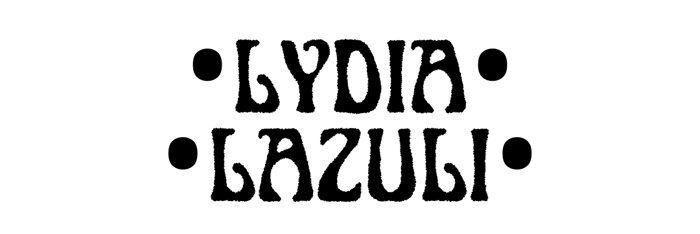AntiSocial(Media)
9 tips for re-writing your relationship with social media.


Rewriting my relationship with social media over the past couple of months has been eye opening to say the least. It has also created a sense of space and slowing in my life that wasn’t there previously.
It’s terrifying how social media can sneak up on you and drain hours out of your week. I wouldn’t say I’ve nailed it, but I would like to share some of what I’ve practised and learnt so far, so that it can be of service to others.
One thing I have noticed in particular has been the shifts in my thoughts and thought patterns.
Initially, after a few days off instagram, using it for the first time would result in people’s shared images and words appearing suddenly in my mind like intrusive thoughts. That was how I began to perceive it; as though there was no control of what was arising in my mind.
And it made me realise: that is what social media IS. We have no control or filter of what we’ll see when we scroll; we are at the complete mercy of an algorithm, and what others have chosen to share. It is a Russian roulette. And all of this visual imagery enters into our psyche from the comfort of our own homes (or toilets!) via a device in our hands; there is no separation between it and us. I believe this has a major impact in making what we see on there so potent, and hence so influential.
This demonstrates massively how there is a need for personal discernment in the ways that we engage with it.
I’ve always had a fairly decent sense of discipline when it comes to habits (with other types of temptation much less, but that’s for another time). In the initial years after my little sister passed, simply seeing an image of a family or siblings was enough to send me into even deeper spirals of depression and despair. This pushed me to all but remove myself from socials, and to exercise my discernment: I knew it made me feel worse, so I hardly used it. Simple. Could you call that an echo of a glimmer of silver lining? Maybe.
A little later when I fell down an eating disorder hole, I used instagram to fuel the extreme self-control I was exerting over my diet and exercise. I had a newsfeed filled with impossibly slim women and information about nutrition and exercise. My scrolling habit fuelled recipe ideas, meal hacks that enabled me to consume as few calories as possible, and “thinspiration”.
The day I realised I needed to unfollow all the accounts that had been fuelling the self-hatred-fuelled discipline I’d been inflicting upon myself was a great day.
It was around that time that I found Yoga Girl, Rachel Brathen, and I started to learn that there were ways of looking after yourself that were soft and kind. Cue my eventual path to yoga. That’s a great example of the wonders of social media: it has the potential to send us down aligned and healthy pathways, too.
Learning how to use and harness it for YOU is the trick.
For me there is no doubt that the rapid increase in ADHD is intrinsically linked to phones and social media. Talk about having created the perfect means to be distracted literally all the time. The advances that we've made in technology in recent years have totally overtaken the rate that we as a species and our brains are evolving at. No wonder we simply cannot handle it. We aren't currently designed to be able to compute this amount and speed of information.
My friend who works in the film industry told me that they now make films differently; storylines are dumbed down and less complex, in the knowledge that people use their phones while watching a movie. Does knowing that not fill you with shame for the human race? It does for me anyway.
In the last two months of rewriting my social media relationship, I have noticed the following changes:
The sense of more choice in how I pass my time, particularly at home in the evenings. I find myself asking myself: shall I read, write, create, go for a walk or have a phone call? My evening space has begun to feel more consciously curated, if you will. I am more regularly and more consciously exercising my freewill.
A separation of the sense of my identity being intertwined with my Instagram account. Before, my instagram account felt like “me”. Now, it feels like a page. That disentanglement has created a lot of creative freedom in the way I use it, and I am much less impacted by a sense (or lack) of validation via likes and views.
I feel less INFLUENCED. I feel that my creativity and thought processes are arising solely from within me. I am also more aware now of the difference between when something comes from within and when something comes from without. Before, I wasn’t making that distinction. (And I guess that’s it - to be an influencer is a job now. Brand advertisements are now principally via influencers using their stuff. The fact that influencing is happening isn’t a secret. But do you want to spend the rest of your life being influenced?!)
So now, without further ado, a list tips for encouraging and enabling physical and psychological separation from social media to happen.
9 tips for slinking off socials
(& into centredness..)
1) Always have an intention every time you open the app.
Going on there to fill spaces or kill time is how they get you; “I’ve got five minutes” is the susceptible vortex that they catch you in. Repeat your intention to yourself - aloud, if possible. “I’m going on to share ___.” “I’m going on to look at photos from last night.” “..to reply to my messages.” (etc.)
There’s something so seductive about reels and pictures and courses and shares and memes and news and updates and astrology and products and events and cats…….. that it’s very easy to totally forget that intention very quickly. Saying it aloud and repeating it a couple of times will help you stay anchored and centred in it.
2) If you don’t have an aim or intention but still want to use it, pause and reflect for a moment and create one.
Simply: “I want to pass fifteen easy minutes on the sofa because I’m tired.” And SET A TIMER.
I most definitely used social media scrolling as a way of regulating my nervous system while I was living with a tyrannical person; it was an easy way to dissociate from my present reality and transport me elsewhere, which offered me a fast track to being more regulated. I was aware of what I was doing at the time. And maybe that’s ok - “I’m using this regulate for 7 minutes.” Set the timer. Be aware. Know that it’s NOT solving any problems, but it’s temporarily filling a need. When the timer goes off, close the app.
3) Bring deeper awareness to the need it is filling.
What is the feeling or context that pushes you to seek validation or dissociation (etc.) from opening the app? Maybe it’s time to work on solving the root of that, rather than numbing from it.
4) Upgrade your phone (habit)
Is there anything else you can do on your phone while you’re waiting in a queue? In Ireland we love a bit of duolingo; it’s definitely a much more fruitful way to kill five minutes. You could bookmark an article you’ve been wanting to read, send a message to someone you’ve been wanting to catch up with, or delete some old stuff to free up storage space.
5) It’s addiction: let’s call a spade a spade.
I have witnessed people of different cultures, ages and generations stuck in scroll-holes. Most of them would not see it as an addiction. I think that we need to amend our language to convey the gravity of the situation we’re in. Apply the usual questions around addictive behaviour to your social media usage: how soon in the day do you use it? How do you react when your access to it is blocked? Have you tried to cut down on your usage but not been able to succeed? Are you using it for much longer than you intend?
6) Aim to not open the app for more than 24 hours.
Creating that more prolonged separation gives the mind space to return to its organic, uninfluenced rhythm. Try and get to 48 hours and observe the differences in your thoughts. I really feel that if we can do that on a weekly basis, we break the insidious relationship we have with social media. The bind we are in with it gets more broken the more regularly we stay away for a day or more at a time. After a few weeks of this, you will likely notice big changes in the way you feel about the app and your relationship with it.
7) Look at the bigger picture
When you look back on your life, what feelings will be conjured up by countless evenings spent on your phone? What would your higher self prefer you did?
8) Tailor it to your needs and mental health
If there's an account that often provokes you to have negative thought processes, try muting it or unfollowing it. You could also try following and interacting with some accounts that inspire you in positive ways, so hopefully the algorithm starts showing you more of what is good for you. If you need to, you can also delete the app off your phone and only use it on your web browser, to make it less accessible.
9) Get an alarm clock
If it's the morning time that gets ya, try buying an alarm clock rather than relying on your phone to wake you up.
Art: The Blue Room by Paul Ranson
